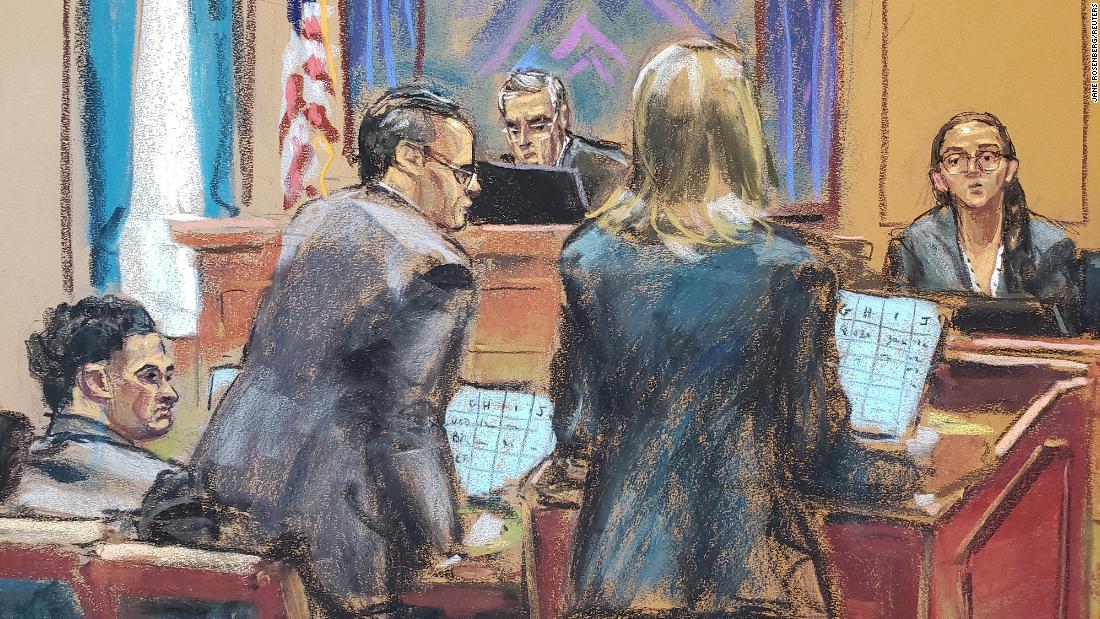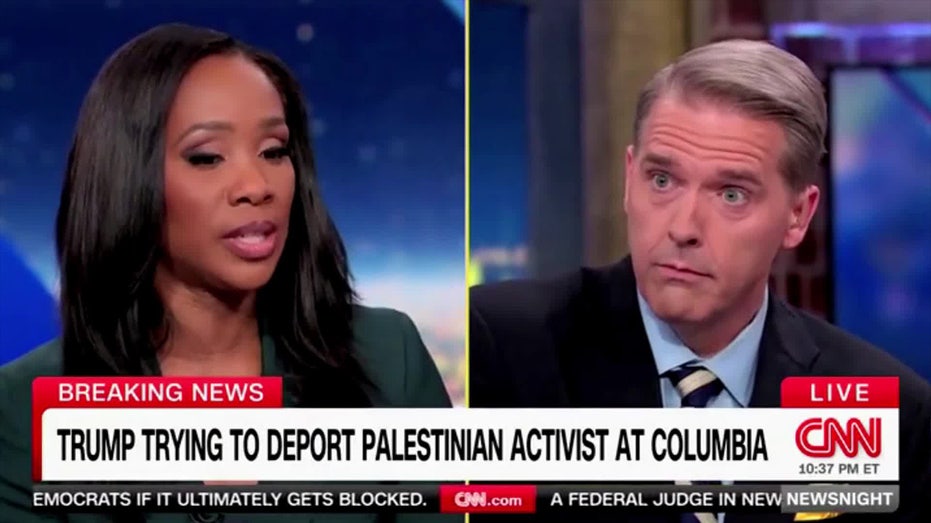- by foxnews
- 12 Mar 2025
Star witness in Sam Bankman-Fried trial offers insider account of alleged criminal enterprise

After more than nine hours of testimony over two days, Caroline Ellison, the most important witness in the government's case against Sam Bankman-Fried, broke down as she described the final days of the crypto empire she helped build.
Strangely, she said, even though it was "overall the worst week of my life," she told Bankman-Fried in the moment that it was also "the best mood I've been in in a year." Through tears, she told jurors she had an "overwhelming feeling of relief" because the moment she'd been dreading had finally come. She didn't have to lie any more, she said, though she still felt "indescribably bad" about the people "we betrayed."
The moment she'd been dreading was the rapid financial implosion in November of Alameda Research, the crypto hedge fund for which she was chief executive, and FTX, its sister trading platform run by Bankman-Fried, 31, who she says directed her and others to mislead the public and investors about the true nature of the relationship between the two companies.
Earlier in the day, Ellison described how she distributed "dishonest" balance sheets to lenders that concealed billions of dollars in funds that had been siphoned from FTX customer accounts.
Before FTX collapsed, it owed its clients $12 billion, but the company - counter to Bankman-Fried's assurances on Twitter - had only $4 billion in client holdings, Ellison said. The missing $8 billion had been siphoned by Alameda to cover its debts and issue loans to Bankman-Fried and others, according to prosecutors.
Bankman-Fried has pleaded not guilty to seven counts of fraud and conspiracy. His defense briefly began to cross-examine Ellison on Wednesday before Judge Lewis Kaplan declared, "it's been a long day," and suggested the court adjourn a half hour early. Defense lawyers will continue cross-examining Ellison on Thursday.
Ellison, who dated Bankman-Fried off and on over two years while working at Alameda, pleaded guilty to seven counts of fraud and conspiracy as part of a cooperation deal with prosecutors.
Over two days, Ellison offered a version of events in which one person, Bankman-Fried, ordered his inner circle to engage in criminal activity. Even though she was the CEO of Alameda, Bankman-Fried was actively overseeing both it and FTX, she testified.
Bankman-Fried could face 110 years in prison if convicted and given the maximum sentence.
The prosecution's case hinges on evidence that Bankman-Fried stole billions of dollars in FTX customer funds to cover Alameda's losses and to enrich himself and others. With money siphoned directly from FTX customer accounts, prosecutors say, Bankman-Fried splurged on luxury real estate and funneled millions of dollars in donations to US political campaigns. In setting up a secret facility that allowed Alameda to borrow from FTX, Bankman-Fried and other executives lied to investors and deceived customers who trusted that their money could be withdrawn at any time.
Ellison and other witnesses have testified that Alameda, which engaged in high-risk crypto trading, had a secret and virtually unlimited line of credit with FTX that allowed it to tap into money that belonged to unwitting customers who had deposited money on the exchange.
Prosecutors' evidence so far suggests FTX's creation in 2019 was primarily driven by Bankman-Fried's desire for a large source of capital beyond the third-party loans that Alameda relied on.
On Wednesday, Ellison also walked jurors through some of her past personal to-do lists that she kept on Google Docs, including one titled "Things Sam is freaking out about," which said she updated regularly to keep tabs on the issues Bankman-Fried was fixated on.
Entries under that title included "getting regulators to crack down on binance" - a reference, she said, to what Bankman-Fried believed was "the best potential ways to improve FTX market share" by attracting customers from FTX's biggest rival. This was something that, according to Ellison, he claimed "regulators had been promising for a while, but it never happened." (Binance, which is currently under intense regulatory scrutiny in the United States, briefly emerged as a potential savior for FTX when its business was in freefall in November of 2022, but it pulled out of the deal after Binance determined FTX's problems were "beyond our control or ability to help.")
The list also included "buying SNAP," which Ellison explained as Bankman-Fried's plan to acquire the parent company of Snapchat.
The entry "Raising from MBS" referred to Bankman-Fried's efforts to raise capital from Saudi Arabia's Crown Prince Mohammed bin Salman.
In her afternoon testimony on Wednesday, Ellison said Bankman-Fried's disheveled appearance was a calculated PR strategy.
"He thought his hair had been very valuable," she said, adding that Bankman-Fried believed he'd received higher bonuses, going back to his early career as a trader at Jane Street, "because of his hair."
She thought he was trying to cultivate an image as an eccentric crypto pioneer.
Bankman-Fried often told journalists that he drove a Toyota Corolla, a detail that could suggest he's a pragmatist who isn't concerned with the trappings of being a billionaire. But Ellison said the Corolla was part of the media strategy, and that he started driving it only after turning in his more luxurious company-issued car.
FTX collapsed into bankruptcy in November of 2022 after a leaked balance sheet revealing Alameda's unusually close financial ties to FTX prompted a panic among investors and customers.
- by foxnews
- descember 09, 2016
Daring airport trend has travelers arriving at gate 15 minutes before takeoff
Flight passengers are participating in the new viral trend, "airport theory," with flyers arriving at their gates 15 minutes before their flights depart. A travel expert weighs in.
read more


